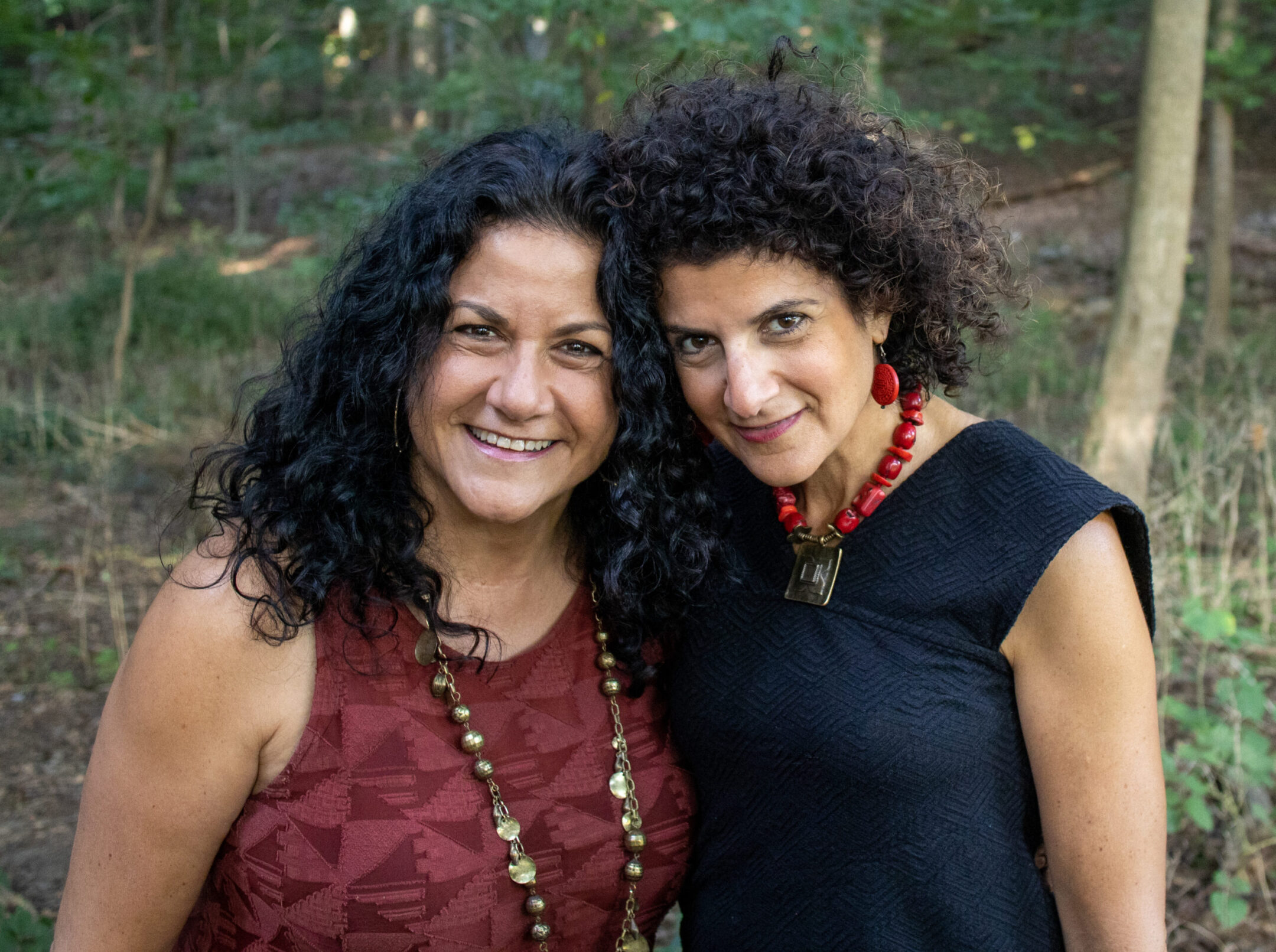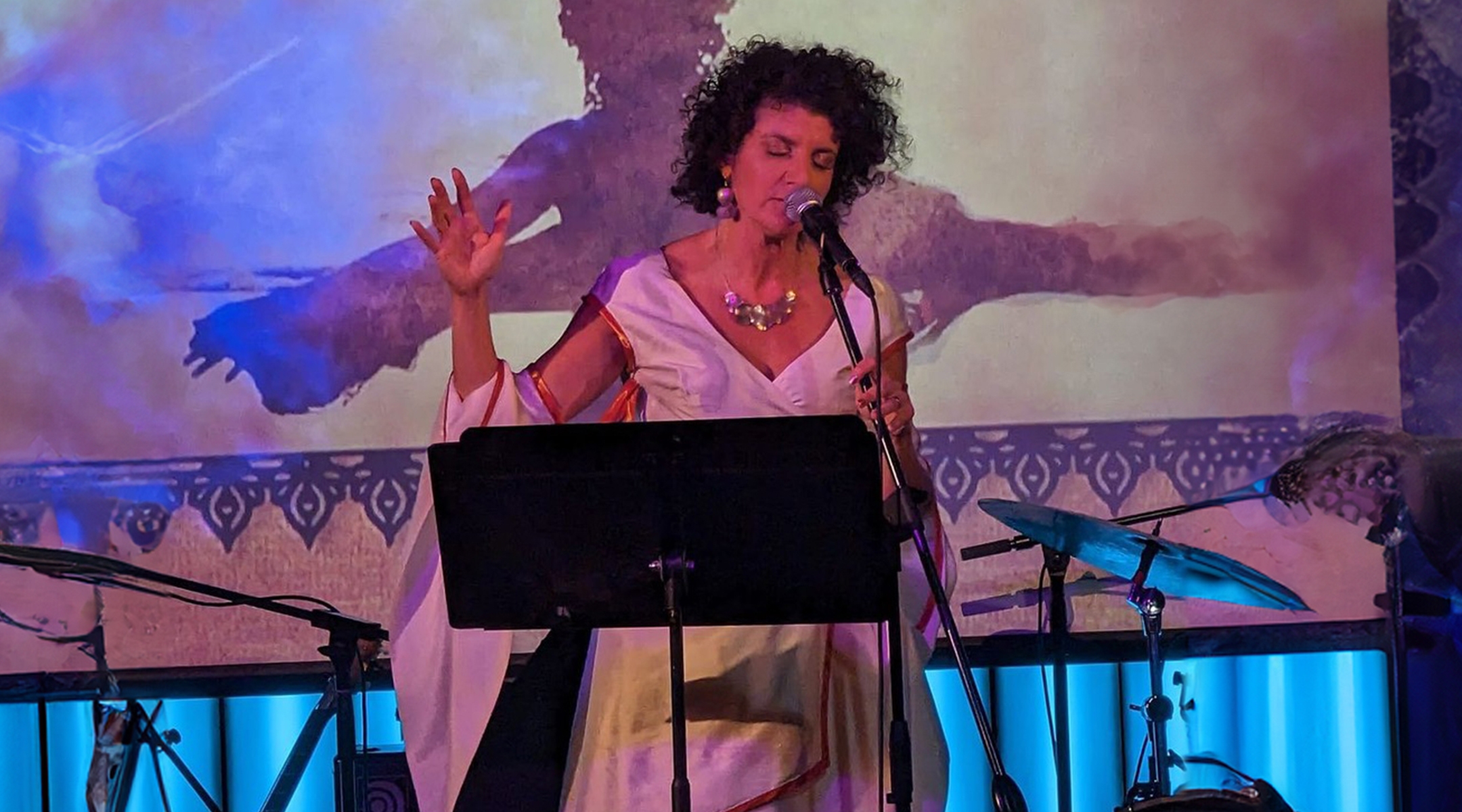Selichot are traditional prayers for forgiveness that are said in the month preceding Rosh Hashanah, the Jewish New Year. These ancient prayers are typically sad and self-deprecating, but they can also be cathartic.
Just ask multi-hyphenate New Yorker Galeet Dardashti, who’s a vocalist, composer, writer and anthropologist.
Earlier this month, on the day the news broke that six hostages held in Gaza had been murdered by Hamas, Dardashti was in Toronto at the famed Ashkenaz Festival, performing songs from her groundbreaking recent album, “Monajat.”
The collection of Persian-style Selichot prayers mixes Dardashti’s present-day vocals with samples of recordings of her late grandfather, Younes Darsdashi, who had been a famous singer in Iran in the 1950s and ’60s.
“It was soothing for me,” Dardashti recently told the New York Jewish Week about the show. “It was powerful for me to do this performance because Elul and Selichot is really about renewal and hope.”
“At that moment, more than ever, I needed hope,” she added.
“Monajat” is the latest stop on a journey that began more than 10 years ago, when Dardashti began exploring the legacy of her grandfather. Younes, known as “the Nightingale of Iran,” was so famous that he sang at the palace of the Shah and had a weekly radio show in the country in the years before the Jewish community mostly fled in the wake of Israel’s independence in 1948 and the Islamic revolution of 1979.
“My family had a lot of recordings of my grandfather singing Persian classical music, because that’s what he was famous for,” Dardashti explains.
But of all the recordings of their patriarch, one in particular stood out: An album of Younes singing the Selichot prayers in Hebrew. “My grandfather recorded it as a fundraiser, singing these amazing prayers of Selichot,” Dardashti said.
In the Sephardic/Mizrahi tradition, these prayers are sung every night throughout the month of Elul ahead of Rosh Hashanah. “They were often sung outside, in people’s courtyards, so everyone would hear my grandfather in the streets of Tehran when he would lead.
“I heard these prayers, and they were so powerful and so moving,” she continued. “And I wanted to do something with them.”
The result is “Monajat” (the word means “intimate dialogue with God” in Persian) which Dardashti, who lives in Westchester her husband, Mason, and their two teenage sons, will perform in New York on Saturday, Sept. 28 at B’nai Jeshurun (257 West 88th St.).
“I want to reinvent Selichot — to reimagine it with my grandfather’s music,” she said. “I found moments where I could sample him, and I found moments where I could alternate verses with him, and then I also composed my own music.”
The album is an outgrowth of Dardashti’s long journey discovering her roots.
Despite the Persian heritage on one side of her family — her father, Farid, came to the U.S. when he was 19, while her mother, Sheila, grew up in an Ashkenazi family in New York — Dardashti and her sisters Danielle, a documentarian, and Michelle, the rabbi at Brooklyn’s Kane Street Synagogue, didn’t grow up with Persian Jewish traditions. Farid Dardashti worked as a cantor in the Ashkenazi tradition. The daughters were raised “all over” the United States, and the family — who often performed together at Jewish events — was very involved in synagogue life wherever they lived. As she grew, Dardashti, too, learned to lead prayers in the Ashkenazi tradition.
However, over time, “I realized I wanted to know more about my Persian heritage,” Dardashi said. She eventually enrolled at University of Texas at Austin to get her PhD in anthropology with the aim to “connect to that part of my heritage that I wasn’t really connected with,” meaning Iran. She began to study Persian classical music, learn some of the language, and eventually launch her all-woman Mizrahi/Sephardi ensemble, Divahn.
“Monajat” takes its name from the final song on Younes Dardashti’s Selichot recordings which, unlike the other songs on the record, was sung in Persian. After seeking scholars’ opinions, Dardashti concluded that her grandfather likely wrote it himself.
“My grandfather was innovating, artistically playing around with the Jewish tradition,” Dardashti said. “So it gave me permission, this artistic license, to try my own innovations, to add my own touch.”
Just what would her grandfather, who died in Israel in 1993, think of the album? “I hope he would love it,” Dardashti said. “I mean, look, I have a lot of chutzpah for playing around with this master’s musicianship. He was a creative — my hope is that he would be really excited to see that I’m trying to continue this cantorial tradition that has really only been men in my family. I think he’d actually be really excited about it, he was a pretty open guy.”
Dardashti released “Monajat” ahead of the High Holidays last year with plans for an extensive tour. But, like so much in the Jewish world, the horrific events of Oct. 7, 2023, upended everything. “I lost my voice for a while,” Dardashti said, looking back on the day Hamas attacked Israel, sparking the ongoing Israel-Hamas war. “I couldn’t figure out how to promote an album. It just seemed totally tone deaf.”
By the beginning of this year, however, another long-term project exploring the Dardashti family history had come to fruition: The release of “The Nightingale of Iran,” a six-episode podcast produced by our colleagues at JTA that Dardashti created and produced with her sister Danielle. Over six episodes, in what’s been described as “a master class in storytelling, music and identity,” Galeet and Danielle, who were named to our 36 to Watch list this year, explore Younes Dardashti’s rise to fame in Iran and unearth family secrets.
The overwhelmingly positive response to “The Nightingale of Iran,” Dardashti said, is what inspired her to begin to promote “Monajat” in the wake of Oct. 7. “People need to come together for music, for inspiration, and to be reminded that there haven’t always been these clear-cut divisions between Jews and Muslims, Israelis and Iranians,” she said. “There was this different time, and it doesn’t always have to be the way it is in this current moment.”
What’s more, in an “exciting reboot,” as Dardashti called it, she is touring the album alongside Danielle and “The Nightingale of Iran.”

Danielle Dardashti, left, and her sister Galeet Dardashti explored their family’s musical history in the podcast “The Nightingale of Iran.” (Courtesy Dardashti family)
“When people see ‘Monajat,’ it’s amazing for them to hear me singing with my grandfather, and I tell his story,” she said. But mixing the podcast with her performance, audiences gain an “understanding, on a much bigger level, who my grandfather was, how he came to be who he was, and how crazy it was that there was this blip in time when a Jew could be a superstar in Iran.”
This week, Dardashti is taking her multi-sensory show on the road, performing “Monajat” with her band, sharing clips of the podcast and participating in a Q&A alongside Danielle. Following performances in Los Angeles, Baltimore, Washington, D.C. and Philadelphia, the tour concludes on Sept. 28 — which is also the Saturday before Rosh Hashanah, when Ashkenazi Jews typically begin chanting Selichot — with the performance at B’nai Jeshurun.
“This month is supposed to be about renewal and hope,” Dardashti said. “That’s really what the content of most of the songs are about. And the music, of course, which is Persian Jewish music, reminds us of a time that isn’t like this current moment — this moment of despair, that feels like there was never a time before this.”
In these times, singing alongside her grandfather is “really empowering,” she said. “It’s really nourishing for me right now.”
The New York Jewish Week brings you the stories behind the headlines, keeping you connected to Jewish life in New York. Help sustain the reporting you trust by donating today.





